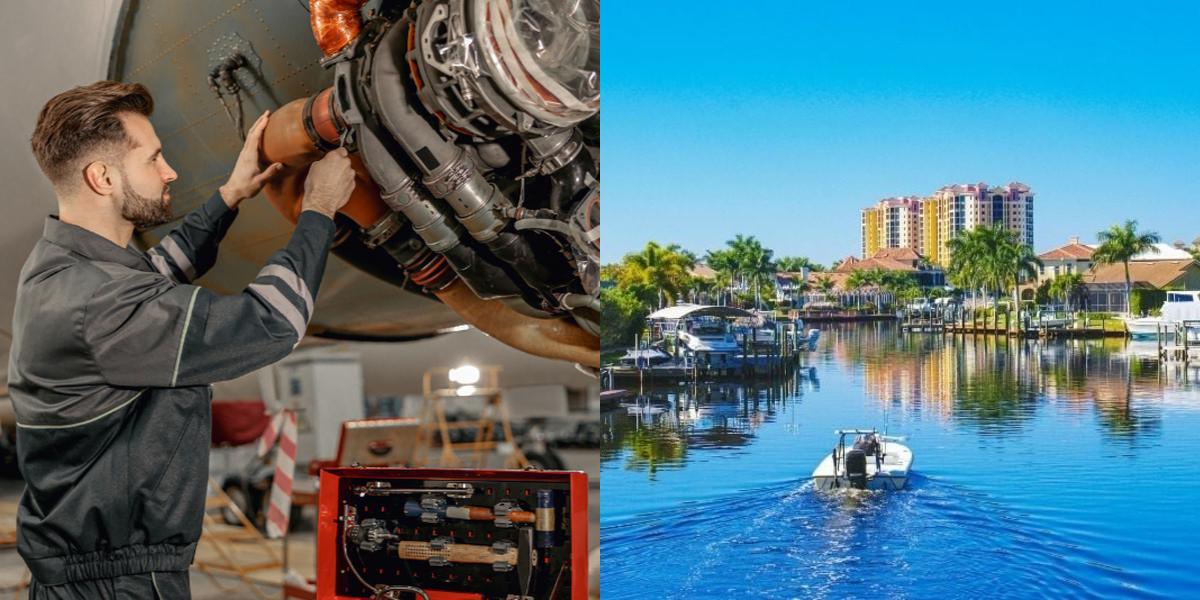How to Become an Aviation Mechanic in Florida

Aviation mechanics, also known as aircraft mechanics or A&P (Airframe and Powerplant) mechanics, are professionals responsible for inspecting, repairing, and maintaining aircraft. They ensure that planes are in optimal condition for safe and efficient operation.
How do I get a job as an Aviation Mechanic?
Once you have obtained your aviation mechanic certification, you are ready to start your career as an aviation mechanic. Here are some steps you can take to increase your chances of getting a job in this field:
-
Build a Strong Resume: Your resume is your first opportunity to make a good impression on potential employers. Make sure your resume highlights your education, training, and experience in the aviation industry. Include any relevant certifications, such as your aviation mechanic certification, as well as any specialized training or skills you have acquired.
-
Network: Networking is an essential part of finding a job in any industry, and the aviation industry is no exception. Attend industry events, join professional organizations, and connect with other aviation professionals on social media platforms. Networking can help you learn about job opportunities, make valuable connections, and get your foot in the door.
-
Apply for Jobs: Start applying for aviation mechanic positions. Look for job openings at airlines, aircraft maintenance and repair facilities, and aviation companies. You can find job listings online, in trade publications, and on company websites. Tailor your resume and cover letter to each job you apply for, highlighting your relevant skills and experience.
-
Prepare for Interviews: If you are invited for an interview, make sure you are well-prepared. Research the company beforehand, practice answering common interview questions, and be ready to talk about your experience and why you are interested in the position. Dress professionally and bring copies of your resume and any supporting documents.
-
Continue Learning and Growing: The aviation industry is constantly evolving, and it is important to stay up-to-date with the latest advancements and technologies. Consider taking additional training courses or certifications to enhance your skills and knowledge. This will not only make you a more competitive candidate but also help you excel in your career as an aviation mechanic.
Career Paths and Opportunities after Becoming an Aviation Mechanic
Becoming an aviation mechanic opens up a wide range of career paths and opportunities. Here are some potential career paths you can pursue after obtaining your aviation mechanic certification:
-
Aircraft Maintenance Technician: Many aviation mechanics start their careers as aircraft maintenance technicians. In this role, you will be responsible for inspecting, troubleshooting, and repairing aircraft. Aircraft maintenance technicians work in a variety of settings, including airlines, aircraft manufacturers, and maintenance and repair facilities.
-
Aviation Inspector: If you have a keen eye for detail and a strong understanding of aviation regulations, you may consider a career as an aviation inspector. Aviation inspectors are responsible for ensuring that aircraft meet safety standards and comply with regulations. They conduct inspections and audits, review maintenance records, and perform quality control checks.
-
Aviation Maintenance Manager: With experience and additional training, you can advance to a management position in the aviation maintenance field. As an aviation maintenance manager, you will oversee a team of aviation mechanics and technicians, manage maintenance schedules, and ensure compliance with regulations. This role requires strong leadership and organizational skills.
-
Aircraft Manufacturing: Another career path for aviation mechanics is aircraft manufacturing. Aircraft manufacturers hire aviation mechanics to assemble and test aircraft components, perform quality checks, and ensure that aircraft meet safety standards. This role allows you to be involved in the production of new aircraft and work with cutting-edge technologies.
-
Specialized Roles: As you gain experience and expertise in specific areas, you may have the opportunity to specialize in certain aspects of aircraft maintenance. For example, you could specialize in avionics, which involves working on aircraft electronic systems, or in powerplant maintenance, focusing on engines. Specializing can lead to higher-paying positions and increased job opportunities.
Final Thoughts
Becoming an aviation mechanic is a rewarding career choice for individuals who have a passion for aviation and a knack for fixing things. By completing the required training, gaining practical experience, and obtaining your aviation mechanic certification, you can start your career in this exciting field. From aircraft maintenance technician to aviation inspector to aircraft manufacturing, there are various career paths and opportunities available to aviation mechanics. So, if you have always dreamed of working with airplanes and keeping them in top shape, consider pursuing a career as an aviation mechanic. The sky's the limit!
Remember, this journey doesn't end with this article — it's just the beginning. So, if this doesn't align with your preferences, explore these other articles:

Jessa Guzon is a member of the School Growth and Customer Success Team in Dreambound. She finds joy in assisting both schools and students in reaching their goals by answering their queries and connecting them with the right people. Outside her professional role, Jessa is a happy-go-lucky person with a thirst for adventure.




